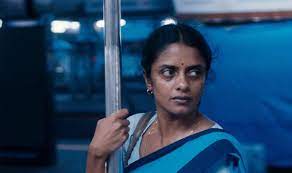In India, the spotlight is usually on Bollywood’s vibrant extravaganzas. However, All We Imagine as Light, a multi-language art-house film set in Mumbai, is breaking new ground. This powerful film, exploring the lives of three women navigating love and loneliness in a busy city, has won international awards and is now gaining attention at home. Its success signals a shift in the appreciation of independent cinema in India.

International Acclaim for All We Imagine as Light
All We Imagine as Light, directed by Payal Kapadia, has received significant recognition, including the Grand Prix at Cannes. The film also earned nominations for Best Director and Best Picture (non-English) at the prestigious Golden Globe Awards. It has now crossed over $2 million in global box office sales and earned entries at the Academy Awards in Best Picture, Best Director, and Best Original Screenplay categories. Yet, it was not India’s official submission for Best Foreign Film at the Oscars.
For Kapadia, the recognition abroad is encouraging, but the domestic reception is particularly special. Despite the challenges, independent films are slowly finding a place in India, thanks to evolving tastes and the growing popularity of streaming platforms.

The Challenges of Independent Cinema in India
In India, Bollywood films dominate the box office, with larger-than-life stories that often include song-and-dance sequences, melodrama, and action. As a result, independent films like All We Imagine as Light face difficulty in reaching large audiences. However, the rise of streaming services is slowly changing this trend. It provides an outlet for more serious and artistic films to reach viewers who are looking for something different.
Kapadia understands the challenges but remains hopeful. She is eager to show her film in smaller cities, where it has yet to be screened.
All We Imagine as Light is making waves in both India and abroad. The film’s success highlights the growing demand for art-house films in a market traditionally dominated by Bollywood. As tastes evolve, it is clear that independent cinema has a place in the future of Indian films.
























